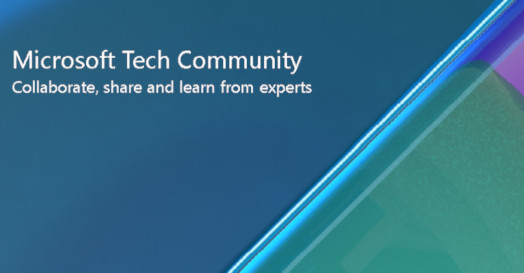Disable automatic distribution of data across CSVs on AKS on Azure Stack HCI and Windows Server

Like every person is different, every Kubernetes cluster is different based on your use cases and requirements. To give you more flexibility and options in your Azure Kubernetes Service (AKS) on-premises deployment, you can now choose whether to enable or disable automatic distribution of your cluster data in the July 2022 update!
A year ago, we introduced automatic distribution of virtual machine data across multiple cluster shared volumes (CSVs). The cluster data was auto distributed in the cluster shared volumes through a round robin scheduling method. When data needed to be stored, AKS on-prem would check the CSVs one by one to see which was available to be used. For example, if the first CSV checked was not available, then AKS on-prem would move on to the next one until it found one that could be used. While this is perfectly fine for most deployment scenarios and helps build resiliency in case of storage outages, sometimes you may want to only have one dedicated CSV to store data in a particular cluster deployment. Before, there was no opt-out option for auto distribution but now, with the July release of AKS on-prem, you have the option of disabling auto distribution and selecting the CSV you would like to be used for all your deployment data!
To try out this new feature, it’s a few simple parameter changes in your set up. You can only turn off auto distribution on a new deployment, so the feature cannot changed existing deployment. After deployment of the AKS on-prem host, the setting cannot be changed. When you’re setting your host configurations with the `Set-AksHciConfig` command, use the new parameter `-createAutoConfigContainers` with the value `$false`. The default is to set the value as `$true`, so if you skip this step, auto distribution will happen by default. If ‘-createAutoConfigContainers’ is set to false, then the path that is specified in the parameter ‘-imageDir’ will be the only CSV that is used to store cluster data in your deployment.
Check out the example below of how `Set-AksHciConfig` would look with auto distribution disabled!
Set-AksHciConfig -createAutoConfigContainers $false -imageDir c:\ClusterStorage\Volume2\ImageStore -workingDir c:\ClusterStorage\Volume1\WorkDir -cloudConfigLocation c:\clusterstorage\volume1\Config -vnet $vnet -cloudservicecidr "172.16.10.10/16"
*This command is an example and assumes that you have already set your `-vnet` configurations. You can find more details about the new parameter on the Set-AksHciConfig PowerShell reference documentation.
And that’s all you need! Try out AKS on Azure Stack HCI and Window Server with this new feature through the links below!
Useful links:
Try for free: https://aka.ms/AKS-HCI-Evaluate
Tech Docs: https://aka.ms/AKS-HCI-Docs
Issues and Roadmap: https://github.com/azure/aks-hci
Evaluate on Azure: https://aka.ms/AKS-HCI-EvalOnAzure
Published on:
Learn moreRelated posts
New Secure Boot update resources for Azure Virtual Desktop, Windows 365, and Microsoft Intune
New documentation is now available to help IT administrators prepare for Secure Boot certificate updates and manage update readiness across vi...
Azure DocumentDB: A Fully Managed MongoDB-Compatible Database
Running MongoDB at scale eventually forces a trade-off: invest heavily in managing your own infrastructure or move to a managed service and ri...
Azure SDK Release (February 2026)
Azure SDK releases every month. In this post, you'll find this month's highlights and release notes. The post Azure SDK Release (February 2026...
Recovering dropped tables in Azure Databricks with UNDROP TABLE
Oops, Dropped the Wrong Table? What now? We’ve all been there: you’re cleaning up some old stuff in Databricks, run a quick DROP TABLE… and su...
Azure Developer CLI (azd) – February 2026: JMESPath Queries & Deployment Slots
This post announces the February 2026 release of the Azure Developer CLI (`azd`). The post Azure Developer CLI (azd) – February 2026: JM...
Improved Python (PyPi/uvx) support in Azure MCP Server
Azure MCP Server now offers first-class Python support via PyPI and uvx, making it easier than ever for Python developers to integrate Azure i...
Microsoft Purview: Data Lifecycle Management- Azure PST Import
Azure PST Import is a migration method that enables PST files stored in Azure Blob Storage to be imported directly into Exchange Online mailbo...